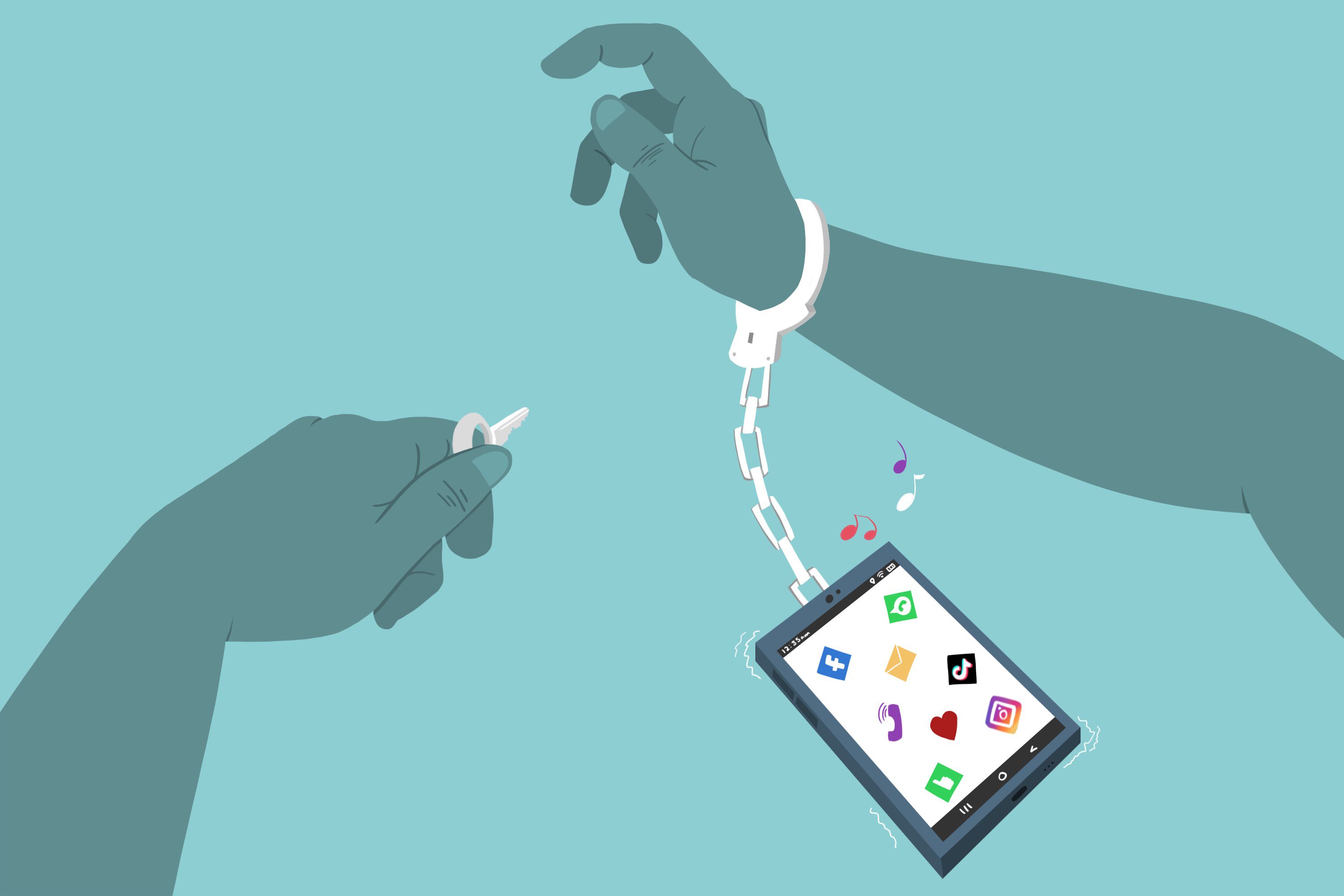Attention-deficit hyperactivity disorder (ADHD) has long been thought to be a congenital developmental disorder resulting from an innate brain dysfunction. However, in recent years, there has been a rapid increase in the number of people being diagnosed with ADHD as adults. One study finds that the number of adults worldwide diagnosed with ADHD has increased from 4.4% in 2003 to 6.3% in 2020 (Journal of Global Health, 2021).
What on earth is the cause of this? As researchers continued their investigation, they discovered that certain behaviors may be contributing to adult ADHD. That is “excessive smartphone use.”
Smartphones have become an indispensable device for modern people, but how can excessive use of them lead to ADHD?

ADHD is a developmental disorder characterized by inattention (an inability to maintain concentration), hyperactivity (a lack of restlessness), and impulsivity (the tendency to act on ideas as soon as they occur). While most cases begin to show in children before the age of 12, it is not uncommon for ADHD to be diagnosed in adolescents or adults. Especially in adulthood, with ADHD, hyperactivity and impulsivity become less noticeable, but inattention becomes stronger, leading to more forgetfulness in personal life, careless mistakes, and being late at work. Recently, it has become clear that the proportion of people diagnosed with ADHD in adulthood is on the rise worldwide.
“Currently, around 366 million adults worldwide live with ADHD—that’s about as many people as there are in the United States,” said Russell Ramsay, a psychiatrist at the University of Pennsylvania. One factor that has been pointed out as being the improvement in the accuracy of ADHD diagnoses is the fact that people with ADHD have a higher level of anxiety than those with other conditions. However, researchers are beginning to see “excessive smartphone use” as an even bigger problem.
A study published in 2018 showed that people who use smartphones for more than two hours per day have a 10% higher risk of developing ADHD symptoms compared to those who use smartphones less (Journal of the American Medical Association, 2018).
According to the researchers, social media and surfing the web on smartphones constantly provide people with new information. Moreover, we can easily access this new information just by opening our smartphones. This means we end up taking frequent short breaks in our personal and professional lives to check our smartphones. Many people who are constantly checking social media on their smartphones probably find it difficult to resist taking frequent breaks during the workday to check if someone has “liked” or commented on their posts. This situation is exactly the same as the state of distraction seen in ADHD.
In addition, spending your free time and breaks on your smartphone means your brain has no time to rest, which reduces your ability to concentrate at work. In other words, frequently looking at your smartphone already embodies symptoms of ADHD such as distractibility and decreased concentration.
Meanwhile, Elias Aboujaoude, a psychiatrist at Stanford University in the US, said: “The link between ADHD and excessive smartphone use has long been a chicken-and-egg problem.” This is because there are two ways of thinking about this: whether the child first develops ADHD and thus becomes distracted and frequently looks at their smartphone, or whether frequently looking at their smartphone causes the child to develop ADHD symptoms.
Researchers around the world have been conducting research to clarify this point, and in recent years there has been increasing evidence that smartphone use is a cause of ADHD. “Excessive use of electronic devices, including smartphones, could exacerbate symptoms in people already diagnosed with ADHD and distract healthy brains in people without ADHD,” says Lidia Zylowska, a psychiatrist at the University of Minnesota.
Historically, ADHD was usually thought to be caused by a congenital neurodevelopmental disorder of the brain. However, if the explanation so far is correct, it is possible that in addition to our developmental disorder, we may be diagnosed with ADHD due to acquired behavioral habits.
Many people find it difficult to sit still for long periods of time and concentrate on reading or watching a movie and end up constantly checking their smartphones. The same is true at work, where many people may find that tasks take longer than before or that they make more mistakes. Most modern people who cannot let go of their smartphones and cannot help but be concerned about social media may already be showing some symptoms of ADHD.
ADHD not only affects an individual’s psychological well-being through symptoms such as anxiety, depression, and low self-esteem, but can also cause a deterioration in relationships with those around them. If you have heard this story and feel like this applies to you, you may want to make a conscious effort to stay away from your smartphone and get into the habit of concentrating on something.